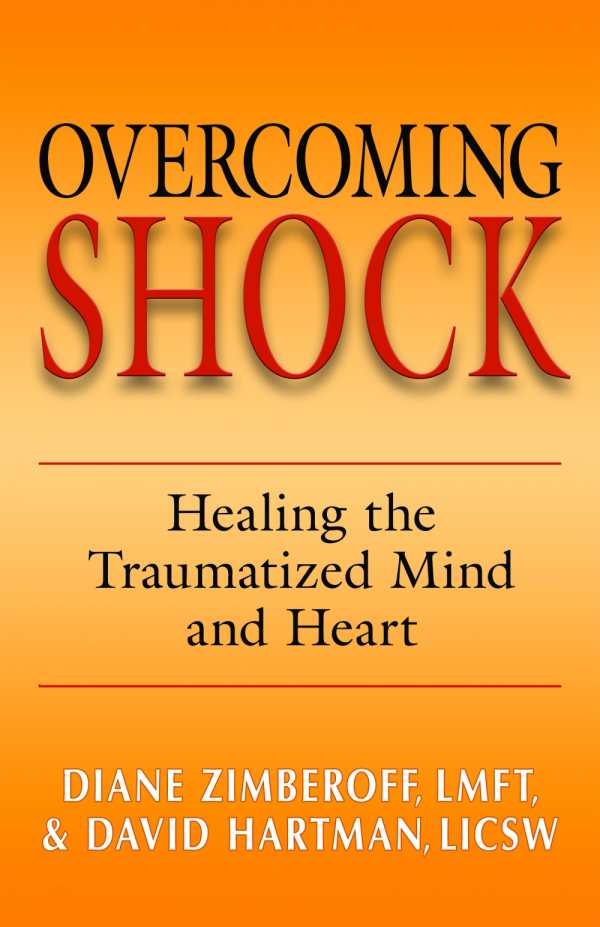
Overcoming Shock
Healing the Traumatized Mind and Heart
Accessible explanations of terminology, theories, and practices opens audiences up to psychological healing of emotional wounds.
Unresolved shock reactions can affect every part of our lives, according to experienced therapists Diane Zimberoff and David Hartman. Their eye-opening book, Overcoming Shock: Healing the Traumatized Mind and Heart, explains that while going into shock can help individuals regroup after a crisis, it can also lead them to shut down emotionally, physically, and spiritually over time. Through a unique combination of psychodynamic theory, regressive hypnotherapy, and intensive group work, Zimberoff and Hartman have helped many clients resolve their shock responses and go on to lead happier lives.
Zimberoff and Hartman explore the complex world of Carl Jung’s archetypes, the use of psychodramas to uncover psychic wounds, and their own Heart-Centered Hypnotherapy, which takes clients back in time to identify and reframe shocks that could originate as far back as the womb. Age regression through hypnotherapy, especially to the fetal stage, is not without its controversies. The refreshing thing about Zimberoff and Hartman’s approach, though, is that they do not appear to be defending their process so much as explaining it in the most accessible way possible. Even if you’re not sure if recovered memories are factual or symbolic, the compassionate case studies offered here clearly show how helpful the process can be for many people.
Overcoming Shock is more than just a series of case studies, however. The authors make a well-informed survey of psychological thought on trauma, and give clear, detailed explanations of the physiology of stress reactions. The role of the sympathetic and parasympathetic nervous systems in handling shock has rarely been elucidated so clearly. Some of the vocabulary—shock pool, toxic nourishment—may be unfamiliar, but in addition to contextual clues, the authors also provide a helpful glossary.
The audience for Overcoming Shock is twofold: individuals seeking new solutions to stress-related problems, and counselors wanting to develop new tools for working with their trauma clients. Both groups may find that looking to the past can in fact be a way to transform the future.
Reviewed by
Sheila M. Trask
Disclosure: This article is not an endorsement, but a review. The publisher of this book provided free copies of the book to have their book reviewed by a professional reviewer. No fee was paid by the publisher for this review. Foreword Reviews only recommends books that we love. Foreword Magazine, Inc. is disclosing this in accordance with the Federal Trade Commission’s 16 CFR, Part 255.
